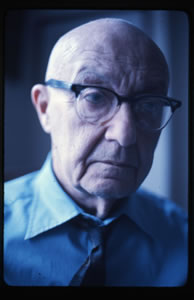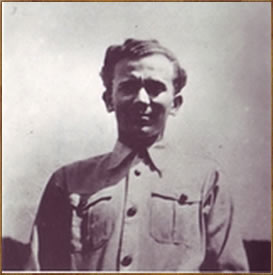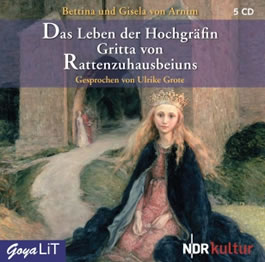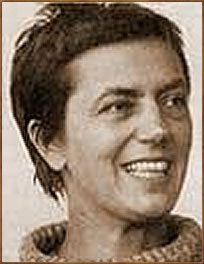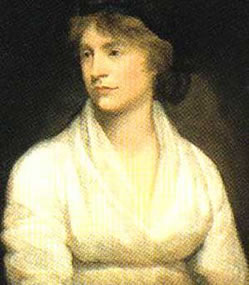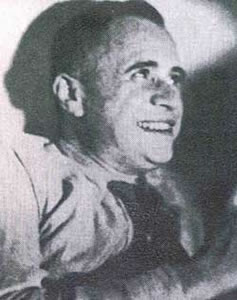Dolce far niente

Der Winter ging
Der Winter ging, der Sommer kam,
er bringt aufs Neue wieder
den viel beliebten Wunderkram
der Blumen und der Lieder.
Wie das so wechselt Jahr um Jahr,
betracht ich fast mit Sorgen.
Was lebte, starb, was ist, es war,
und heute wird zu morgen.
Stets muss die Bildnerin Natur
den alten Ton benutzen
im Haus und Garten, Wald und Flur
zu ihren neuen Skizzen.

De Wilhelm-Busch-Apotheke in Wiedensahl, de geboorteplaats van Wilhelm Busch
De Amerikaanse dichter Charles Reznikoff werd op 30 augustus 1894 in New York geboren. Zie ook alle tags voor Charles Reznikoff op dit blog
‘The lamps are burning in the synagogue…’
“The lamps are burning in the synagogue,
in the houses of study, in dark alleys. . .”
This should be the place.
This is the way
the guide-book describes it. Excuse me, sir,
can you tell me
where Eli lives, Eli the katzev—
slaughterer of cattle and poultry?
One of my ancestors.
Reb Haskel? Reb Shimin? My grandfathers.
This is the discipline that withstood the siege
of every Jew;
these are the prayer-shawls that have proved
stronger than armor.
Let us begin then humbly. Not by asking:
Who is This you pray to? Name Him;
define Him. For the answer is:
we do not name Him.
Once out of a savage fear, perhaps;
now out of knowledge—of our ignorance.
Begin then humbly. Not by asking:
shall I live forever?
Hear again the dear dead greeting me gladly
as they used to
when we were all among the living?
For the answer is:
if you think we differ from all His other creatures,
say only if you like with the Pharisees, our teachers,
those who do not believe in an eternal life
will not have it.
In the morning I arise and match again
my plans against my cash.
I wonder now if the long morning-prayers
were an utter waste of an hour
weighing, as they do, hopes and anguish,
and sending the believer out into the street
with the sweet taste of the prayers on his lips.

De Chinees-Franse dichter, schrijver en vertaler François Cheng werd geboren op 30 augustus 1929 in Nanchang in China. Zie ook alle tags voor François Cheng op dit blog.
Uit:Cinq méditations sur la beauté
“La cosmologie chinoise est fondée sur l’idée du Souffle, à la fois matière et esprit. À partir de cette idée du Souffle, les premiers penseurs ont avancé une conception unitaire et organique de l’univers vivant où tout se relie et se tient. Le Souffle primordial assurant l’unité originelle continue à animer tous les êtres, les reliant en un gigantesque réseau d’entrecroisements et d’engendrement appelé le Tao, la Voie. Au sein de la Voie, la nature du Souffle et son rythme sont ternaires, en ce sens que le Souffle primordial se divise en trois types de souffles qui agissent concomitamment : le souffle Yin, le souffle Yang et le souffle du Vide médian. Entre le Yang, puissance active, et le Yin, douceur réceptive, le souffle du Vide médian — qui tire son pouvoir du Vide originel — a le don de les entraîner dans l’interaction positive, cela en vue d’une transformation mutuelle, bénéfique pour l’un et pour l’autre. Dans cette optique, ce qui se passe entre les entités vivantes est aussi important que les entités mêmes. (Cette intuition si ancienne rejoint la pensée d’un philosophe du xxe siècle : Martin Buber.) Le Vide prend ici un sens positif, parce qu’il est lié au Souffle ; le Vide est le lieu où circule et se régénère le Souffle. Tous les vivants sont habités par ces Souffles ; chacun est cependant marqué par un pôle plus déterminant du Yin ou du Yang. Citons, comme exemples, les grandes entités formant couples : Soleil-Lune, Ciel-Terre, Montagne-Eau, Masculin-Féminin, etc. En correspondance avec cette vision taoïste, la pensée confucéenne, comme nous l’avons vu plus haut, est elle aussi ternaire. La triade Ciel-Terre-Homme affirme le rôle spirituel que l’homme doit jouer au sein du cosmos. Cette conception cosmologique fondée sur le Souffle-Esprit entraîne notamment trois conséquences concernant notre manière d’appréhender le mouvement de la vie. Première conséquence : à cause de la nature dynamique du Tao, et surtout de l’action du Souffle qui assure, depuis l’origine, et de façon continue, le processus qui va du non-être vers l’être — ou plus précisément, en chinois, du wu « il n’y a pas » vers le you « il y a » le mouvement de la vie et notre participation à ce mouvement sont toujours un permanent et mutuel jaillissement, comme au commencement. Autrement dit, le mouvement de la vie est perçu à chaque instant plutôt comme un avènement ou un « rebondissement » que comme une plate répétition du même. Pour illustrer cette forme de compréhension, nous pouvons citer comme exemples deux pratiques qui ont traversé le temps et qui demeurent vivaces : le taijiquan et la calligraphie. »

Cover Engelse uitgave
De Engelse schrijfster Mary Wollstonecraft Shelley werd geboren op 30 augustus 1797 in Somers Town, London. Zie ook alle tags voor Mary Wollstonecraft Shelley op dit blog.
Uit: Frankenstein
« La cosmologie chinoise est fondée sur l’idée du Souffle, à la fois matière et esprit. À partir de cette idée du Souffle, les premiers penseurs ont avancé une conception unitaire et organique de l’univers vivant où tout se relie et se tient. Le Souffle primordial assurant l’unité originelle continue à animer tous les êtres, les reliant en un gigantesque réseau d’entrecroisements et d’engendrement appelé le Tao, la Voie. Au sein de la Voie, la nature du Souffle et son rythme sont ternaires, en ce sens que le Souffle primordial se divise en trois types de souffles qui agissent concomitamment : le souffle Yin, le souffle Yang et le souffle du Vide médian. Entre le Yang, puissance active, et le Yin, douceur réceptive, le souffle du Vide médian — qui tire son pouvoir du Vide originel — a le don de les entraîner dans l’interaction positive, cela en vue d’une transformation mutuelle, bénéfique pour l’un et pour l’autre. Dans cette optique, ce qui se passe entre les entités vivantes est aussi important que les entités mêmes. (Cette intuition si ancienne rejoint la pensée d’un philosophe du xxe siècle : Martin Buber.) Le Vide prend ici un sens positif, parce qu’il est lié au Souffle ; le Vide est le lieu où circule et se régénère le Souffle. Tous les vivants sont habités par ces Souffles ; chacun est cependant marqué par un pôle plus déterminant du Yin ou du Yang. Citons, comme exemples, les grandes entités formant couples : Soleil-Lune, Ciel-Terre, Montagne-Eau, Masculin-Féminin, etc. En correspondance avec cette vision taoïste, la pensée confucéenne, comme nous l’avons vu plus haut, est elle aussi ternaire. La triade Ciel-Terre-Homme affirme le rôle spirituel que l’homme doit jouer au sein du cosmos. Cette conception cosmologique fondée sur le Souffle-Esprit entraîne notamment trois conséquences concernant notre manière d’appréhender le mouvement de la vie. Première conséquence : à cause de la nature dynamique du Tao, et surtout de l’action du Souffle qui assure, depuis l’origine, et de façon continue, le processus qui va du non-être vers l’être — ou plus précisément, en chinois, du wu « il n’y a pas » vers le you « il y a » le mouvement de la vie et notre participation à ce mouvement sont toujours un permanent et mutuel jaillissement, comme au commencement. Autrement dit, le mouvement de la vie est perçu à chaque instant plutôt comme un avènement ou un « rebondissement » que comme une plate répétition du même. Pour illustrer cette forme de compréhension, nous pouvons citer comme exemples deux pratiques qui ont traversé le temps et qui demeurent vivaces : le taijiquan et la calligraphie. »

Cover
Zie voor nog meer schrijvers van de 30e augustus ook mijn blog van 30 augustus 2017 en ook mijn blog van 30 augustus 2016.














